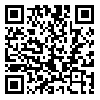Volume 22, Issue 1 (10-2024)
sjsph 2024, 22(1): 31-40 |
Back to browse issues page
Download citation:
BibTeX | RIS | EndNote | Medlars | ProCite | Reference Manager | RefWorks
Send citation to:



BibTeX | RIS | EndNote | Medlars | ProCite | Reference Manager | RefWorks
Send citation to:
Mahmoudiani S, Movahed Majd M, Mohammadiha H. The Relationship Between Food Literacy Components and Healthy Eating Habits in the Adult Population of Shiraz City, Iran. sjsph 2024; 22 (1) :31-40
URL: http://sjsph.tums.ac.ir/article-1-6303-en.html
URL: http://sjsph.tums.ac.ir/article-1-6303-en.html
Abstract: (144 Views)
Background and Aim: Healthy eating habits are undeniably one of the most crucial determinants of people's health in today's world. Undoubtedly food literacy and its components are key variables influencing food habits. This study aimed to investigate the relationship between food knowledge, food skills, resilience and healthy eating habits in the adult population of Shiraz City, Iran.
Materials and Method: A sample of 384 adults in Shiraz City was selected by cluster sampling and completed a questionnaire in 2023. Food literacy included 3 components, namely, knowledge, skill and resilience, determined using a standard 14-item questionnaire. The scale used to measure healthy eating habits included 6 items. Data analysis was conducted using SPSS version 27 software.
Results: The majority of the sample demonstrated average levels of food knowledge, food skills, resilience and healthy eating habits. Multivariate analysis revealed a significant positive correlation between age and healthy eating habits, while individuals with university education exhibited significantly healthier eating habits compared to illiterate individuals. Furthermore, it was found that food knowledge and resilience had the most significant effect on healthy eating habits, respectively.
Conclusion: The purpose of this research was to investigate the relationship between the components of food literacy and healthy eating habits in the adult population of Shiraz City, Iran. Food knowledge and resilience had significant effects on healthy eating habits. In general, it can be concluded that the implementation of targeted training courses with a special emphasis on improving food knowledge and skills should be prioritized by relevant authorities. Promoting food literacy has the potential to promote healthy eating habits and ultimately elevate the overall level of community health.
Materials and Method: A sample of 384 adults in Shiraz City was selected by cluster sampling and completed a questionnaire in 2023. Food literacy included 3 components, namely, knowledge, skill and resilience, determined using a standard 14-item questionnaire. The scale used to measure healthy eating habits included 6 items. Data analysis was conducted using SPSS version 27 software.
Results: The majority of the sample demonstrated average levels of food knowledge, food skills, resilience and healthy eating habits. Multivariate analysis revealed a significant positive correlation between age and healthy eating habits, while individuals with university education exhibited significantly healthier eating habits compared to illiterate individuals. Furthermore, it was found that food knowledge and resilience had the most significant effect on healthy eating habits, respectively.
Conclusion: The purpose of this research was to investigate the relationship between the components of food literacy and healthy eating habits in the adult population of Shiraz City, Iran. Food knowledge and resilience had significant effects on healthy eating habits. In general, it can be concluded that the implementation of targeted training courses with a special emphasis on improving food knowledge and skills should be prioritized by relevant authorities. Promoting food literacy has the potential to promote healthy eating habits and ultimately elevate the overall level of community health.
Type of Study: Research |
Subject:
Public Health
Received: 2024/10/16 | Accepted: 2024/10/1 | Published: 2024/10/1
Received: 2024/10/16 | Accepted: 2024/10/1 | Published: 2024/10/1
| Rights and permissions | |
 |
This work is licensed under a Creative Commons Attribution-NonCommercial 4.0 International License. |





